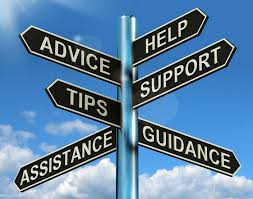 March 2018
March 2018
People living in the same building, at times for years or decades, may have little contact with each other. Most of the time contact is limited to a short greeting or conversation while in the elevator or when checking for mail. Brief conversations may occur during building meetings or social events.
When a neighbour begins to have trouble, it can be difficult to know what can or should be done. An older resident may begin leaving garbage outside their door, forgetting what floor they live on or try to enter the wrong suite. Newspapers may accumulate. While their door is open there may be strange odours or visible trash on the floor.
Older adults having trouble in condo buildings may be more common than anyone is willing to acknowledge. There is no information available to determine the scope of this problem which is something the community must decide how to handle. Seniors are most likely to struggle while attempting to live independently as they age. They may have mobility issues, confusion or changes in behaviour. Caring for a spouse may take a toll. Depression is a problem among older adults.
City life and condo life in particular can lead to a more isolated lifestyle and contribute to such problems. Condo communities, which are governed by rules and by-laws, can make doing the neighbourly thing and providing assistance unnecessarily complex.
 It can be difficult to know what to do.
It can be difficult to know what to do.
People are less likely to have family members available to help out than in the past. Periodic phone calls, while helpful, are not a solution. A phone call is unlikely to help determine if someone is eating properly, able to walk or gets lost on the street. Identifying and helping with problems requires a physical presence.
So, in condo buildings, this may become the responsibility of condo boards and management.
Condo management is not required to get involved unless there is a safety concern that affects other residents or condo rules are not being followed. There is no obligation to provide in-suite assistance and doing so may conflict with condo corporation governing documents. Yet a condo community is comprised of people and, at times, some people require assistance. Concerned individuals have numerous options to assist unlikely to be covered in condo rules or by-laws.
Condo boards need to be aware of their fiduciary responsibility and treat all residents equitably. Resident problems, which may include a failure to comply with condo rules or by-laws including failure to pay condo fees, should not become a burden on the condo community.
A condo board is generally not required to take action unless an issue affects the condo corporation as a whole or its common areas.
When the health or safety of a resident becomes a concern, condo neighbours, boards and management can help those in need of assistance.
 Condo management can:
Condo management can:
- Contact a family member and inquire if the individual is ok. Mention what has been noticed by others.
- Contact 911 if the matter appears to be an emergency situation.
- Maintain a list of emergency contact information for all residents.
- Maintain a list of elderly residents living alone and others who may require assistance.
- Maintain a list of local social service agencies, home care services and retirement homes in the area. Make contact with appropriate agencies when residents are having difficulties or provide this information to family members as requested.
 Condo residents can:
Condo residents can:
- Contact a family member and inquire if the individual is ok.
- Contact 911 if the matter appears to be an emergency situation.
- Provide nonmedical assistance to help a resident in difficulty. This may include shopping, help with cleaning or cooking, or other domestic chores.
- Contact the management office to share concerns and ask for their assistance.
- Organize social activities to counter loneliness. Tea with neighbours, movie nights, card playing and other activities are a way to keep in touch with neighbours who may become isolated and unable to cope.



